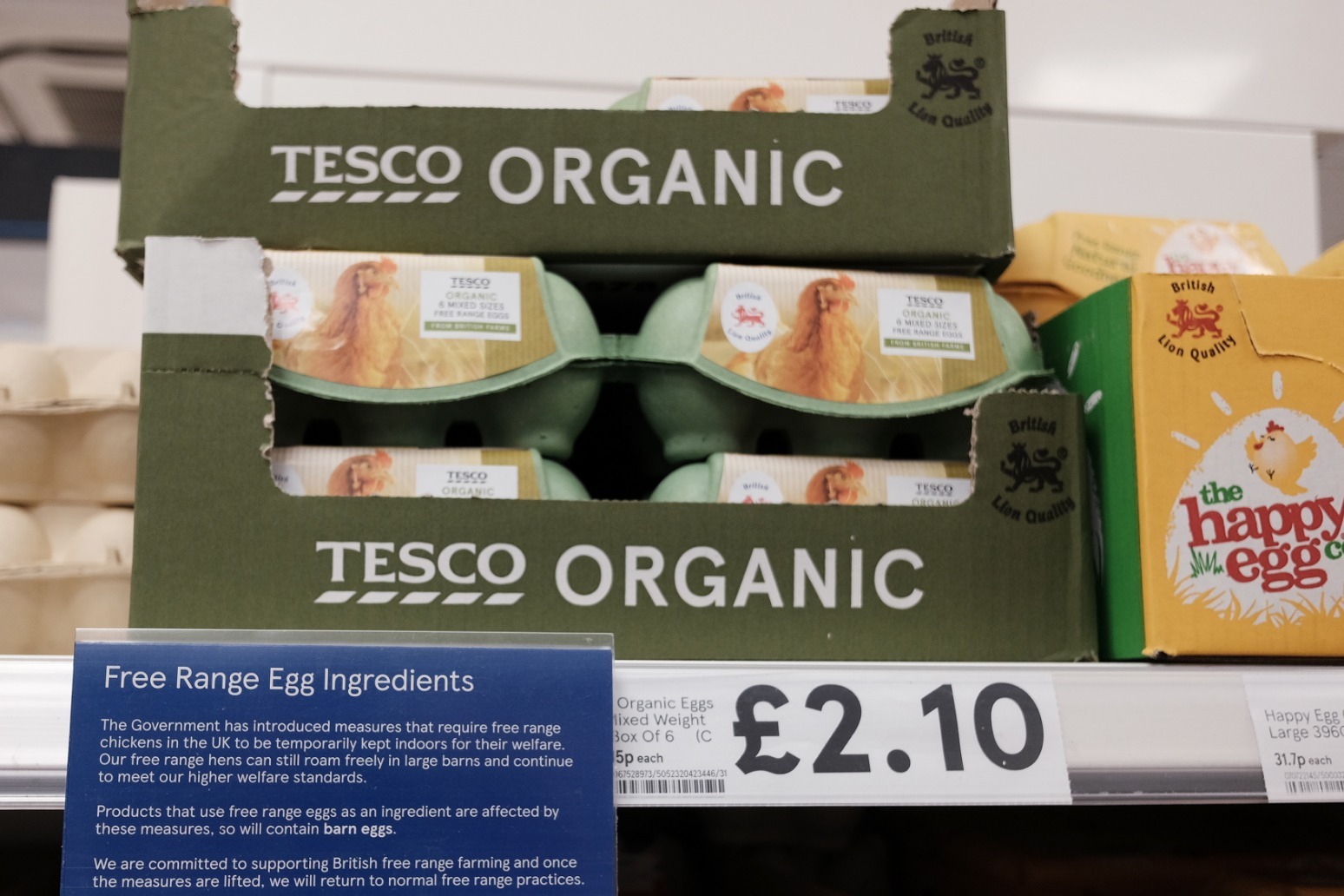
Free-range eggs can return to UK shelves from May 2
Free-range eggs will soon return to UK supermarket shelves as measures which were introduced to curb bird flu cases are due to be dropped.
The Department for Environment, Food and Rural Affairs (Defra) announced the mandatory housing course of action, which was introduced in late November 2021 following an outbreak of avian flu, will now be scrapped.
From Monday May 2, poultry and other captive birds will no longer need to be housed, unless they are in a protection zone, and will be allowed to be kept outside.
For the past month, free-range eggs had to have stickers or labels marking them as “barn eggs” and supermarkets had to display information in-store and online to tell consumers what is happening and why.
It is expected the free-range eggs will start to appear on shelves within a few days from May 2, however, eggs laid before then that are still labelled as “barn eggs” may take a few days to sell.
The risk of bird flu has been reduced from “high” to “medium” for premises with poor biosecurity while further requirements brought in to protect flocks from the outbreak – including cleansing and disinfecting equipment, clothing and vehicles and limiting access to non-essential people on sites – will remain in force for the next few weeks, Defra said.
In a joint statement, the four chief veterinary officers said: “Whilst the lifting of the mandatory housing measures will be welcome news to bird keepers, scrupulous biosecurity remains the most critical form of defence to help keep your birds safe.
“It is thanks to the hard work of all bird keepers and vets, who have played their part in keeping flocks safe this winter, that we are in a position to take this action. However, the recent cases of avian influenza show that it’s vital that bird keepers remain vigilant for signs of disease and maintain stringent standards of biosecurity.”
The UK has faced its largest ever outbreak of bird flu with more than 100 cases confirmed across the country since late October.
Public health advice is that the risk to human health is very low. The Food Standards Agency and Food Standards Scotland advise that avian influenza poses a very low food safety risk for UK consumers, and it does not change their current advice on consumption of poultry products including eggs.
Published: by Radio NewsHub